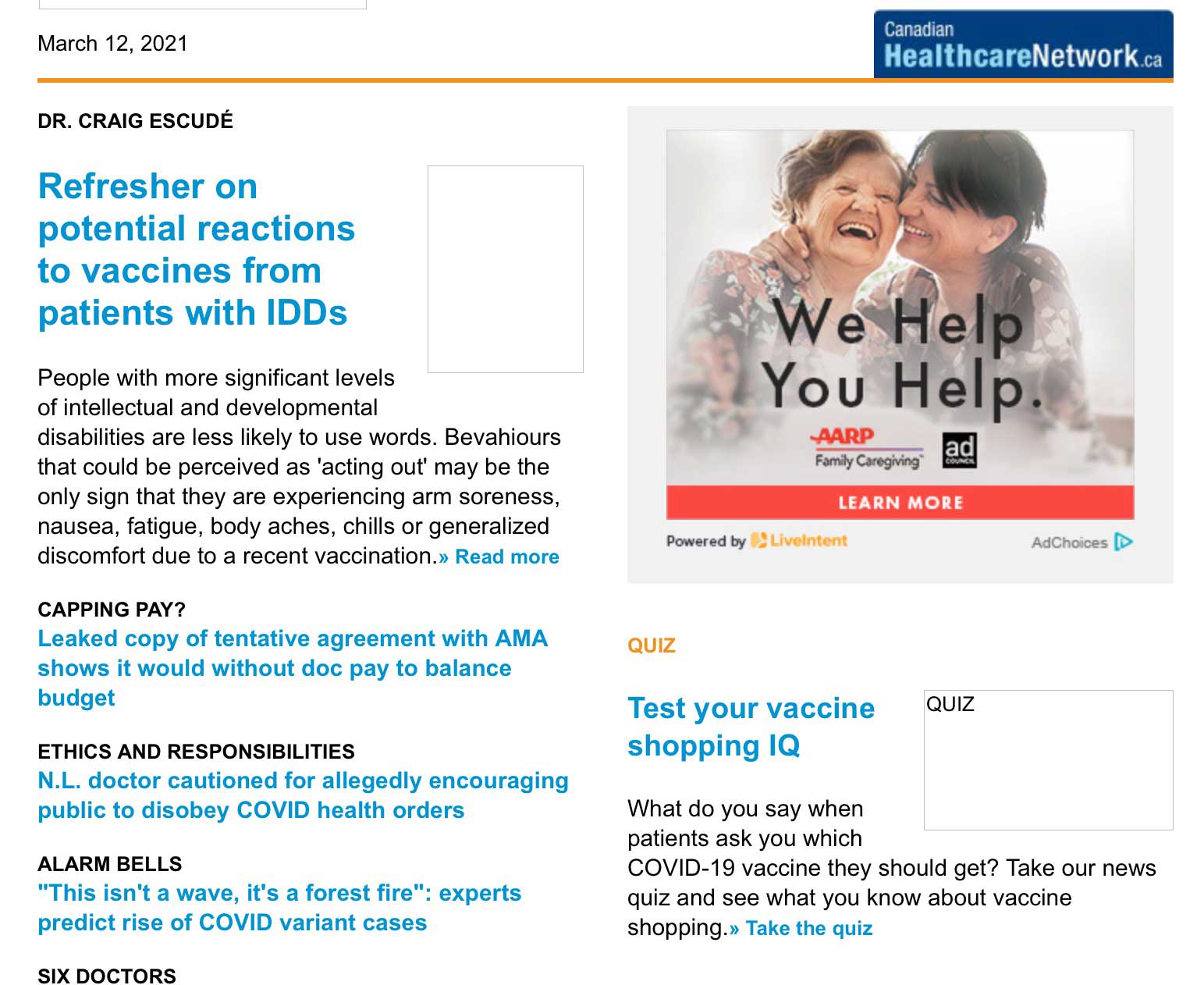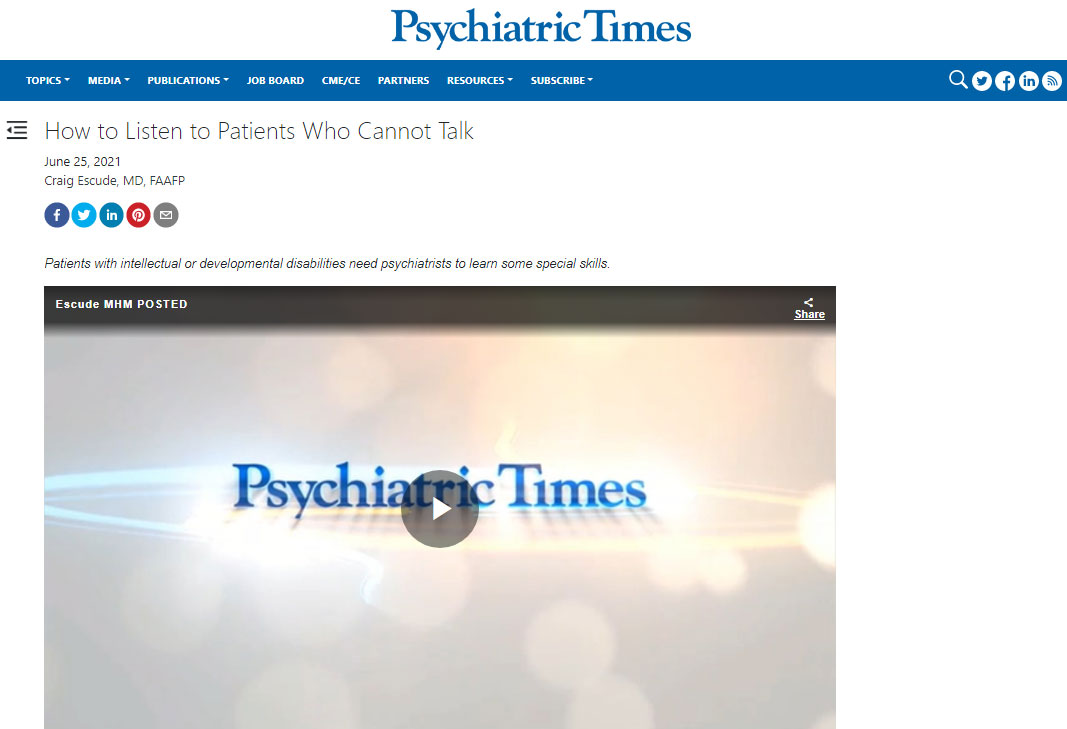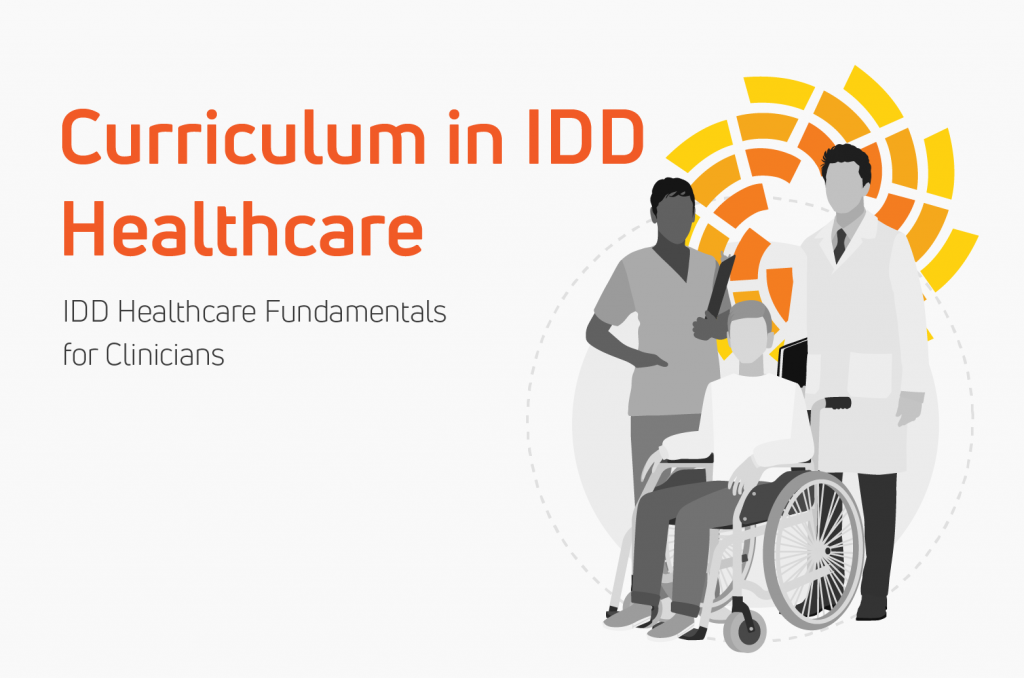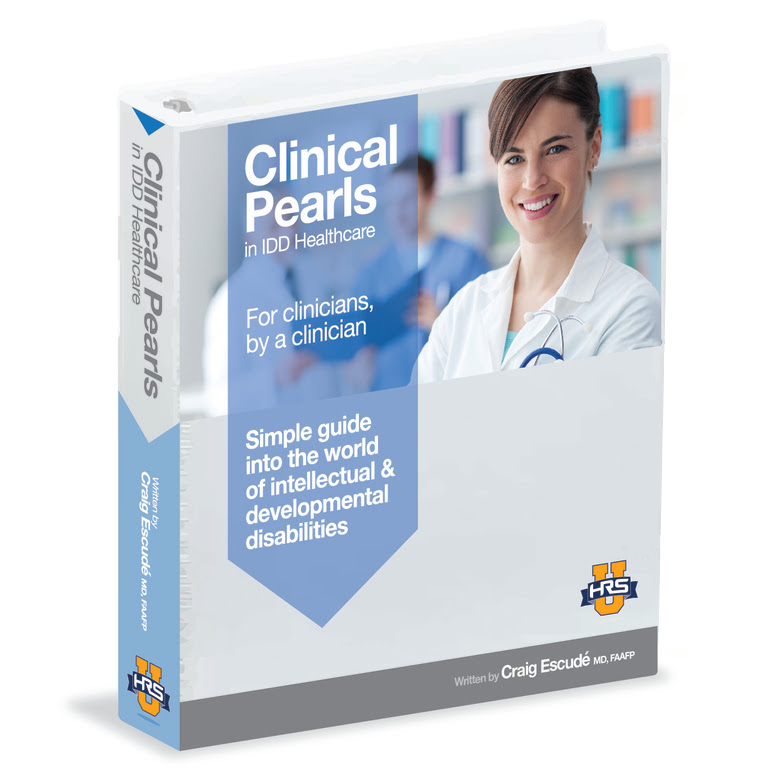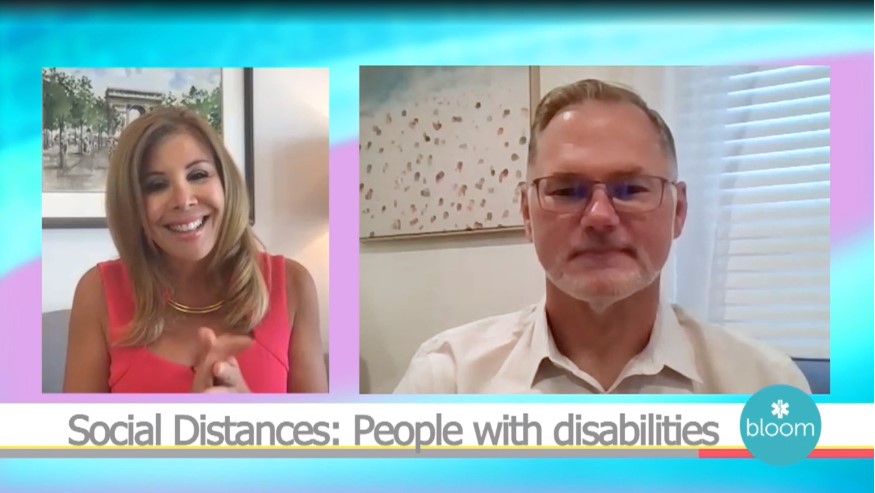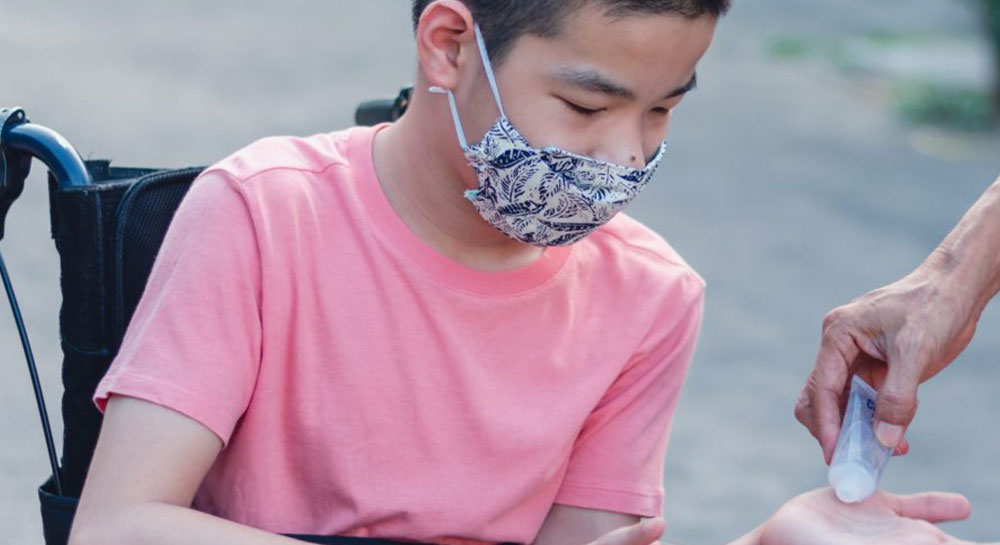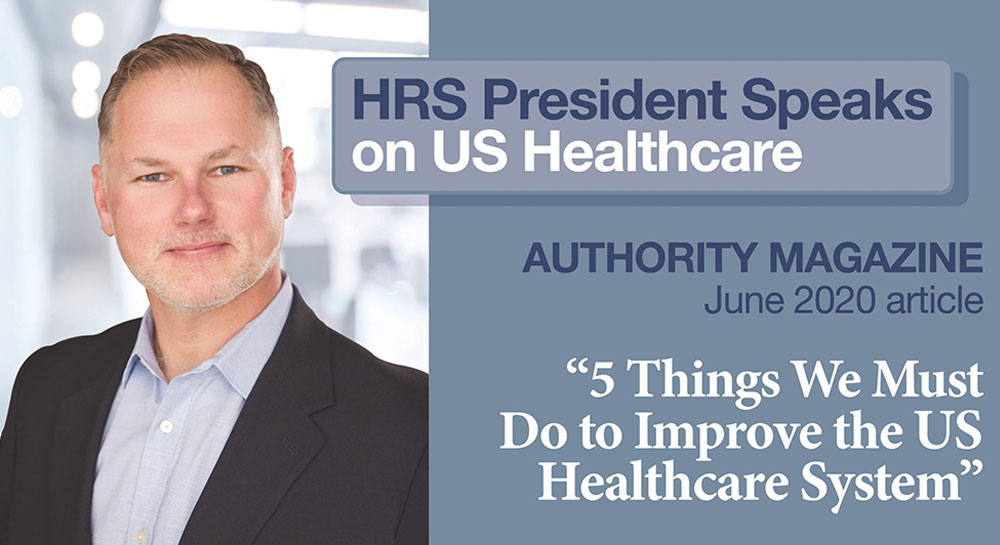Advocates are pushing to advance health equity for people with intellectual and developmental disabilities through policies like COVID-19 vaccine prioritization, increased access to home- and community-based services and better coverage and delivery of care.
Stakeholders say both policy changes and a mental shift in health care providers’ perceptions of people with IDD are needed.
“In my mind, the first thing that we need to do, the biggest mindset change that we need to understand, [is] that people with disabilities are people first,” said Craig Escudé, president of IntellectAbility, which provides tools to support caregivers of people with IDD.
The COVID-19 pandemic has shone a bright light on health disparities for people with IDD. In 2020, advocates had to convince federal policymakers to clarify that people with IDD can have a non-medical support person visit or stay with them in the hospital during the pandemic.
Groups also fought for disabled adults to be fairly considered for ventilators. Many people with IDD weren’t considered for ventilator access at the beginning of the pandemic because their quality of life was considered less valuable, said Allen Wong, president of the American Academy of Developmental Medicine and Dentistry.
Despite these efforts, advocates say pandemic response is still far from equitable for people with IDD. AADMD and other groups, including The Arc and the American Network of Community Options and Resources, have asked the federal government to prioritize people with IDD who do not live in congregate settings for COVID-19 vaccines due to their high risk of poor outcomes from COVID-19.
People with IDD are three times more likely to die from the virus, a November analysis from FAIR Health found. Some states have included people with developmental disabilities in earlier phases for vaccine priority, but there’s no standard practice across the country.
The system of care for adults with IDD wasn’t working well prior to the pandemic, said Shannon McCracken, vice president of government relations for ANCOR. The pandemic offers an opportunity to make a better, more sustainable system.
Organizations specifically are lobbying policymakers to make some CMS waivers permanent after the pandemic, like telehealth flexibilities, allowing electronic signatures on support plans for people with IDD and paying family caregivers.
Reimbursement for family members who care for a person with IDD during the pandemic has also helped address a critical shortage of support staff — a challenge IDD advocates have been working on since before the pandemic began.
Continuing and expanding site-of-care flexibilities after the pandemic is also important, McCracken said. Through CMS waivers, some states are allowing Medicaid to reimburse for services done at home during the pandemic that were previously done outside the house, like skill-building programs. Other adults are allowed to work at home, so it makes sense to offer that option to disabled adults even after the pandemic, McCracken said.
Increasing coverage of and access to home- and community-based services is a crucial priority for disability advocates. McCracken was glad to see the increase in federal Medicaid matching funds for HCBS in the American Rescue Plan.
Molly Burgdorf, senior director of rights policy for The Arc, said her group wants to see HCBS access expanded and Medicaid’s institutional bias broken down. The organization is championing a new bill, released as a discussion draft earlier this month, that would require state Medicaid plans to cover HCBS and eventually get rid of waiting lists for the services, among other things.
AADMD also wants to see people with IDD classified as a medically underserved population, which would open up access to federal programs and funding. The HEADs UP Act, introduced by Reps. Seth Moulton (D-MA) and Brian Fitzpatrick (R-PA) in the last Congress, would earn people with IDD this classification. Rep. Moulton’s office said he plans to reintroduce the bill this year.
Burgdorf also said strengthening Medicaid in general is key to advancing health equity for adults with IDD. The Arc is an ardent supporter of strengthening the Affordable Care Act, she said.
Medicaid “is crucially important for people with IDD and their families. But we also support Medicaid expansion, because especially for low wage, direct support professionals — we want to be sure that they also have access to adequate care,” she said.
Advocates also feel the medical community does not have enough training on how to care for adults with IDD.
“It’s widely known that people who go to medical school, dental school, allied health professional schools, nursing schools, receive little, if any training at all about understanding the healthcare needs of people with disabilities,” Escudé said.
Self-advocate Barbara Coppens said having a doctor who understands and respects her as a patient is important. Recently, she’s helped lead sensitivity trainings for doctors.
“They need to listen to what you need to say to them,” Coopens said.
The problem is compounded by few people going into the disability medicine field, Wong said. He worries who will take care of his patients when he eventually retires as a disability-serving hospital dentist, but lawmakers can help tackle this problem by devoting federal funding to loan forgiveness programs and otherwise incentivizing advanced training to care for disabled adults, he said.
Additionally, nurses who specialize in caring for developmentally disabled adults need a seat at the policymaking table, said S. Diane Moore and Kathy Brown of the Developmental Disability Nurses Association.
Burgdorf hopes policymakers emerge from the pandemic having learned the importance of including people with IDD in their decisions.
“We’re part of every city, we’re part of your state, we’re part of the nation,” she said. “So when we’re thinking about [COVID-19] response, I think a lot of the gaps … or even frankly, failures — folks just weren’t thinking along those lines.” — Maya Goldman (mgoldman (at) iwpnews.com).
